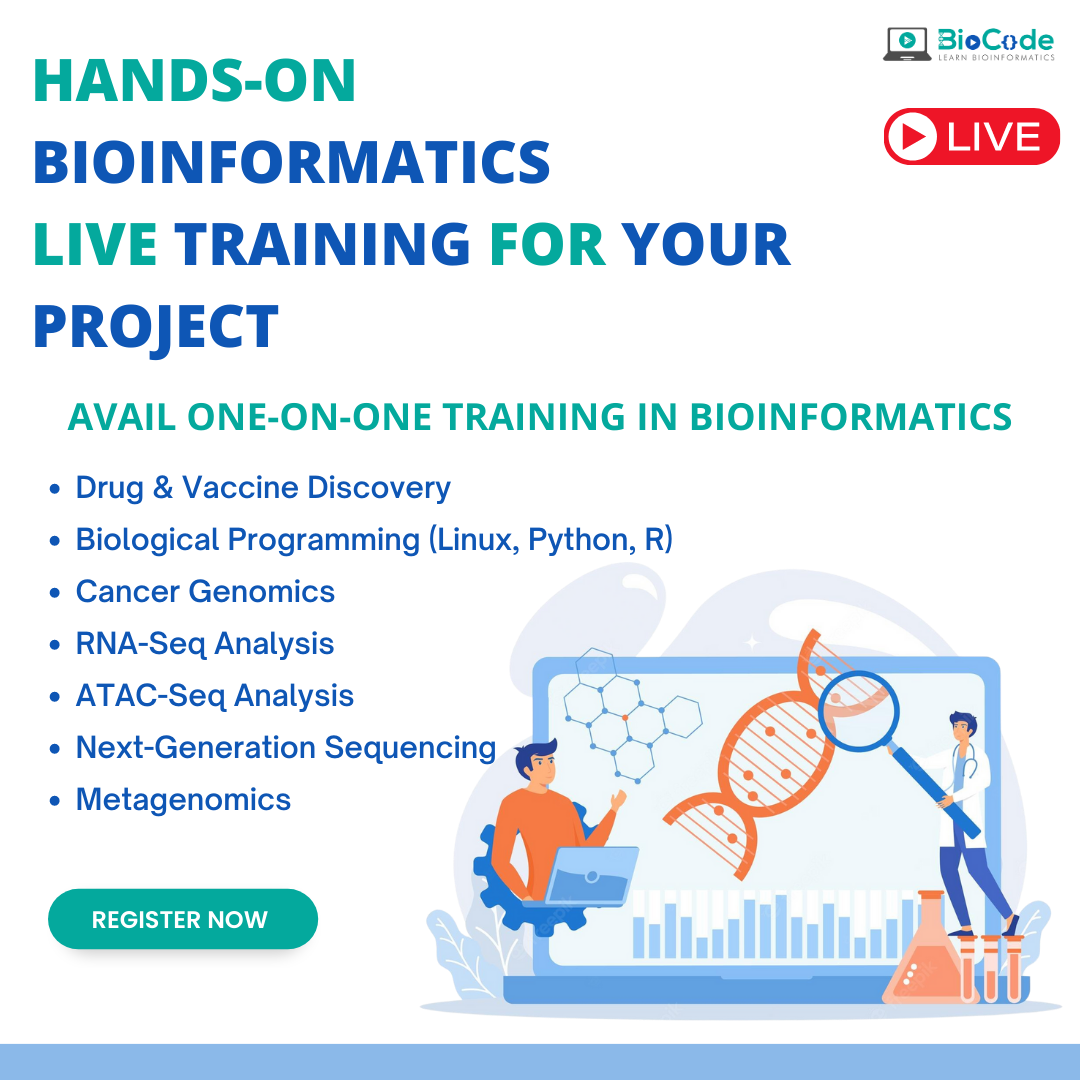The Best Guide To Bioinformatics Tutor
The Best Guide To Bioinformatics Tutor
Blog Article
6 Simple Techniques For Bioinformatics Tutor
Table of ContentsThe Single Strategy To Use For Bioinformatics TutorBioinformatics Tutor Things To Know Before You BuySome Ideas on Bioinformatics Tutor You Need To KnowIndicators on Bioinformatics Tutor You Should KnowThe Single Strategy To Use For Bioinformatics Tutor
Of the total amount participants associated with the training, 80% were pupils from public higher education institutions, while the staying 20% came from private organizations. To certify for a certificate of involvement, students were required to attend at least 90% of the total training hours. As a result of this requirement, an excellent 95% of the individuals efficiently acquired their certificates, having not just fulfilled the minimum presence standards however also finished all assigned tasks throughout the training.
During the elevation of the COVID-19 pandemic, particularly in between June and August 2020, the project group was charged with arranging specialized training in bioinformatics. This training was especially intended at pupils from the research study team Core for Research study in Applied Computer at the Federal College of Pará (UFRA) The adaptation to remote knowing platforms due to the pandemic developed a possibility to discover new teaching approaches and electronic tools that boosted both reach and efficiency.
This training course was developed to give an accessible yet thorough review of Artificial Intelligence strategies, specifically as applied in bioinformatics (Bioinformatics Tutor). This virtual layout allowed participation from students throughout Brazil, several of whom may not have had the chance to participate in in-person sessions.
How Bioinformatics Tutor can Save You Time, Stress, and Money.
A noteworthy function of this course was its emphasis on hands-on learning. Roughly 50% of the total training hours were dedicated to practical tasks where pupils built intelligent designs and applications in a series of scientific domain names, including genetics, molecular biology, and ecological data evaluation. Extensively utilized tools and structures such as Spyder, Google Colab, Jupyter Notebooks, and Orange were integrated into the coursework. These platforms made it possible for trainees to take part in real-time data manipulation, design training, and algorithm experimentation.
Sixty of them were associated with numerous higher education and learning establishments in the state of Pará, while the continuing to be twenty came from establishments found in five various other Brazilian states. By introducing Artificial Knowledge in a relevant and sensible context, the campaign served to bridge the space in between theory and real-world application, supplying students with a solid structure for future research study or work in the area.
The training effort created component of a broader academic outreach initiative recognized as the Bioinformatics when traveling task. This task has, about his throughout the years, introduced lots of trainees to the world of bioinformatics and computational biology. The occasions held under this umbrella initiative have happened throughout multiple areas and years, as summed up in Table 1 (Checklist of occasions, locations, years, and overall varieties of pupils and instructors)
Several of these teams, at first brought with each other by their participation in training occasions, have given that gone on to create independent scientific research study in partnership with regional scholastic institutions. The training not only promoted clinical reasoning within the context of bioinformatics however also triggered collaborative connections that prolonged beyond the training atmosphere.
Things about Bioinformatics Tutor
The exact same group, omitting IH and RR, additionally acted as tutors for the useful her comment is here training components. Financing for the project was offered via the grant 88887.200562/ 2018-00 from CAPES.
The Federal College of Pará's Office of Research (PROPESP/UFPA) additionally supplied monetary assistance, especially for the production of the last manuscript. The writers declare no commercial or financial conflicts of interest that could have affected the research study. In addition, all point of views and analyses shared in this article are solely those of the authors and do not necessarily show those of their corresponding organizations, the publisher, editors, or reviewers associated with the publication process.

See This Report about Bioinformatics Tutor
From a pedagogical viewpoint, the teaching technique used in the training was purposefully interactive. Courses were conducted in a manner that urged trainee participation and discussion, exceeding rote memorization to discover exactly how ideas are created, applied in every day life, and tested in scholastic settings. The training approach focused on supporting both strong and struggling pupils, providing individualized support, and building confidence through continual mentorship and perseverance.

Each group, containing about 36 individuals, was supported by 3 advisors-- a lot of whom were postdoctoral researchers with specific expertise. These mentors not just assisted develop the group projects yet also promoted their implementation, making sure that each research concern was both appropriately difficult and pertinent. The goal was to give a naturally sensible context that individuals can explore with open-ended purposes and access to curated datasets.
For extra insights into the approach and results of this project-based discovering technique, readers are guided to S1 Text, that includes detailed descriptions of the pedagogical framework, examination methods, and project styles utilized in the training sessions.
Some Known Details About Bioinformatics Tutor
Of the overall individuals involved in the training, 80% were pupils from public greater education organizations, while the staying 20% came from exclusive organizations. To certify for a certification of involvement, students were needed to participate in at the very least 90% of the total training hours. Significantly, past the students that enlisted in the training sessions, seven skilled teachers participated in delivering the courses, while 3 specialized research study teachers collaborated the overall training procedure. About 50% of the overall training hours were devoted to useful tasks where trainees constructed smart designs and applications in a variety of clinical domains, consisting of genetics, molecular biology, and ecological information analysis. The training not just cultivated clinical thinking within the context of bioinformatics however likewise sparked collective connections that prolonged beyond the training environment.
Report this page